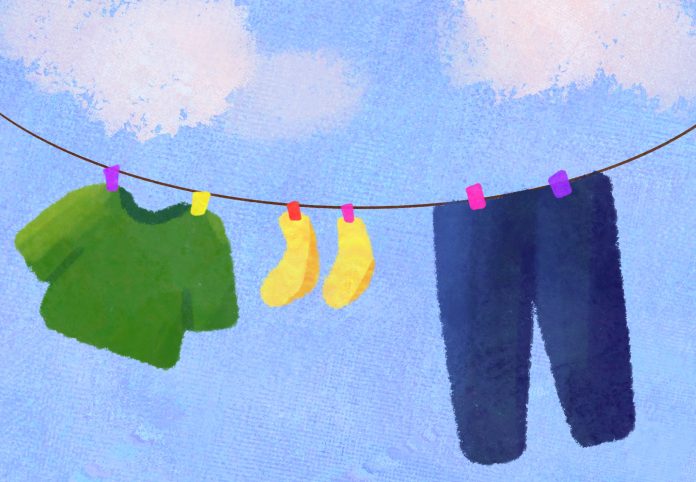Han Do
Staff Writer
If you’ve been on the internet in the last five years, you likely encountered articles, tweets, or videos decrying the fast fashion industry. Their tones are often quite alarming, telling you that you are supporting modern slavery by buying a shirt from H&M. On the other hand, they can be overly dismissive as well. Either way, you’re left feeling desensitized and detached, like your actions don’t matter anyway. The issues posed by the fast fashion industry are two-fold: its violations are both an environmental issue and a human rights issue.
The production of garments is a water intensive process that often uses nonrenewable resources. The waste products are eventually dumped into local water streams, killing rivers worldwide. Garment workers are often paid poverty wages as little as $95 per month, and are forced to work long hours under unsafe conditions.
If you’ve spent as much time on the internet as much as I have, you would have also heard arguments defending fast fashion such as “boycotting fast fashion is classist,” “not everybody has the money to buy sustainable fashion or access to thrift stores,” “sustainable fashion doesn’t accommodate plus-size people,” and lastly, “but I’m giVinG pEoPLe jObs.” There is certainly validity to these arguments, and there’s lots of room for nuanced conversation. However, it is hard to take these arguments seriously when the people espousing them are neither poor nor plus size. Let’s make one thing clear: a poor person buying an item from H&M because they need it is different from a consumer spending hundreds of dollars on one of their regular shopping sprees; only one of them is sustaining the fast fashion industry.
As one commenter shared on a YouTube video:
“As a plus size and relatively poor person in a rural area who exclusively buys thrifted and slow fashion, it’s pretty frustrating to see people tokenize people like me to justify their shitty overconsumption. Trust me, you have options if you actually bothered to prioritize something other than having the same clothes as your favorite influencer.”
Personally, it is harder to address the last argument. Being from a third world country myself, I recognize that I’m a lot more privileged than the average person where I’m from, many of whom, especially women, rely on the factory jobs these fast fashion companies offer. But giving someone a job that barely allows them to sustain themselves or live with dignity is not a good excuse for your own overconsumption.
Remember, if you’re not paying the price, someone else is. So buy from brands that pay their workers fairly, and buy quality things that can be enjoyed for a long time so the environment won’t have to pay for your shopping habits. If consumers vote with our dollar, fast fashion companies will be forced to change as they lose out on profits and sales.
Oftentimes, these conversations can place the bulk of the responsibility on the consumer to do the right thing, but we can also pressure fashion companies to be more transparent, and vote for legislations and regulations that will make that happen. We can make things better for the people who make our clothes if we stop thinking of ourselves as individual actors but rather part of a collective. The slow fashion movement has pressured brands to increase standards for their workers across the board, evidence that it is effective in fighting against fast fashion.
Perhaps, the reason why fast fashion is so contagious and toxic is because we as consumers don’t know what it means to be happy without buying clothes that won’t be trendy after a month. Living in a consumer society means that we identify with the products we buy, and “if we are the product we buy, then we buy in order to be.”
The fast fashion industry exploits our needs for love, connection, and belonging to manipulate us into buying things we don’t need. My goals for this year is to fulfill those basic human needs in connecting with friends, creating art, reading more books, and doing things that bring true joy, which can’t be bought by spending another $5 on a top you’ll definitely throw out after one wear.
Kant says to treat people as ends in themselves, and not a means to an end. Modern advertising has people believing they have to buy, and churn the wheels of capitalism, but we can do so much better. As the saying goes, “shame the fast fashion brand, not the people who buy them.” Mend your clothes, and love the things you own for a long time.












Personally, it is harder to address the last argument i agree
Comments are closed.